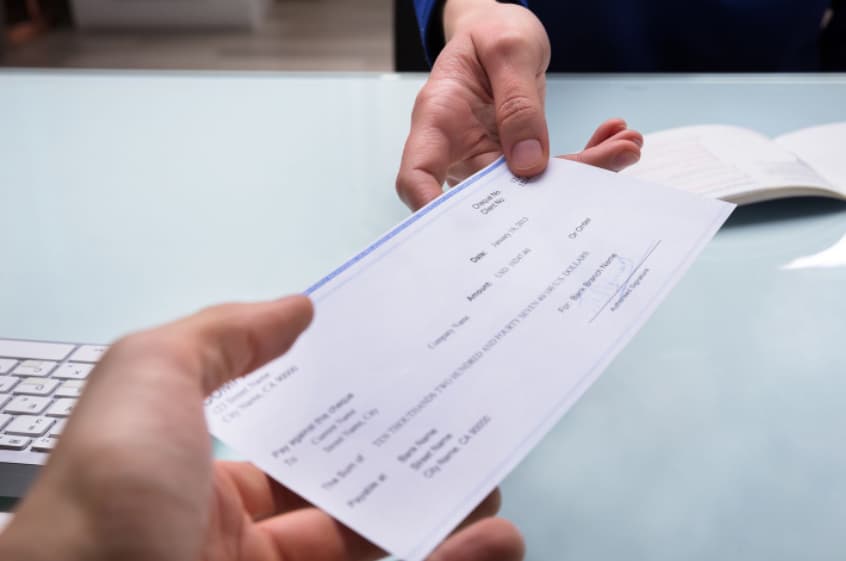What is Cashiers Check – A cashier’s check is a form of payment offered by banks and credit unions to their customers. They work very similarly to personal checks with some important differences.
For instance, while a personal check is written and signed by the person looking to make a payment (the payor), a cashier’s check is instead issued by the bank and in most cases must be purchased by the payor.
What is Cashiers Check?

The fact that the check is printed and issued by the bank is why cashier’s checks are also sometimes referred to as ‘official checks’ or ‘bank checks’.
Why are Cashier’s Checks Needed?
Cashier’s checks are a more secure and efficient form of payment than personal checks. This arises from the fact that before a bank issues a cashier’s check, they first ensure that the customer has sufficient funds in their bank accounts to cover the amount of the check. By issuing the cashier’s check, the bank is effectively guaranteeing payment.
This is the primary advantage of using a cashier’s check. With a personal check, the person or entity receiving the check still faces the possibility that after depositing the check the funds do not clear.
For large transactions were paying with cash or a credit card is not feasible, a cashier’s check is a great option because of the fact that it’s secure, guaranteed by the bank, and therefore poses almost no risk of not clearing. In addition, because the checks are issued by the bank, they are also processed more quickly (usually one business day) than a personal check.
How does a Cashier’s Check Differ from a Money Order?
A money order is a convenient method of payment that is also cost-effective. They are a cash equivalent form of payment that does not require a bank account. Because the funds are paid upfront, there is also no risk of the transaction not clearing.
Money orders can be purchased at many locations (not just a bank) including post offices, gas stations, and grocery stores. The main difference between a money order and a cashier’s check is that the largest money order one can buy is $1,000.
So if you’re looking to make a payment greater than $1,000 you’ll have to find a method other than a money order. With a cashier’s check, there is no maximum amount.
What do Cashier’s Checks Cost?
There is a wide variation in how much banks and credit unions charge their customers for cashier’s checks. Typically, the cost ranges from $5.00 to $10.00 but can be as high as $15.00. Credit unions usually charge amounts at the lower end of this range and on average charge $5.00.
To give you an idea of how much variation there is in the cost, the three largest banks in the United States, Chase Bank, Wells Fargo, and Bank of America, currently charge $8.00, $10.00, and $15.00 respectively for a cashier’s check.
That said, depending on the type of bank account you have, getting a cashier’s check could cost you nothing. For example, if you have a Chase Secure Checking account, the bank will not charge you for a cashier’s check.
Where Can You Get a Cashier’s Check?
Cashier’s Checks are issued at bank and credit union branches. To get one you generally will need to go to your bank’s branch and request one from a teller. The teller will then start the process of issuing the check including ensuring that your bank account has sufficient funds to cover the amount of the check.
In situations where you do not have an active account with the bank, you’ll need to provide the amount of the check-in cash to the bank before they issue the check.
Once the bank has confirmed that your account has sufficient funds to cover the check and you’ve paid the fee for the cashier’s check, you’ll have to submit information on the person or business you’re paying. The bank will then print the check.
Conclusion
We often need to buy cashier’s checks because it is the requested form of payment from a person or business. Most people will tend to need one or two cashier’s checks per year, but there are cases where the need can be a lot higher.
For example, some landlords require that their tenants pay their monthly rent using a cashier’s check. For people that find themselves in these types of situations, it is a good idea to find a checking account that waives the fee for cashier’s checks, as the fees can very quickly add up.
So, we hope you know What is Cashiers Check and how it works in the finance industry.
